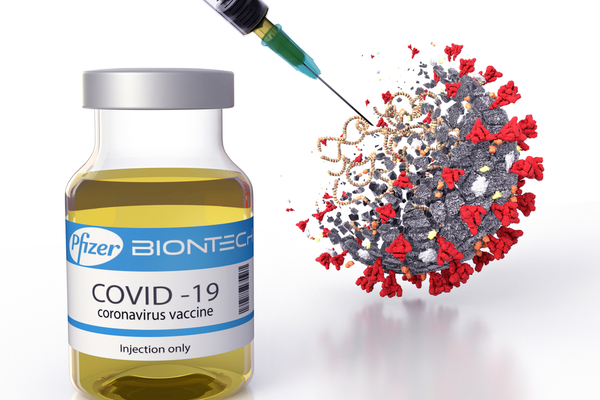The New York Times reports that at the urging of federal regulators, two coronavirus vaccine makers – Pfizer and Moderna – are expanding the size of their clinical trials for children ages 5 to 11 — a precautionary measure designed to detect rare side effects including heart inflammation problems that turned up in vaccinated people younger than 30.
The Food and Drug Administration has indicated to Pfizer-BioNTech and Moderna that the size and scope of their pediatric studies, as initially envisioned, were inadequate to detect rare side effects. Those include myocarditis, an inflammation of the heart muscle, and pericarditis, inflammation of the lining around the heart, multiple people familiar with the trials said.
Questions about vaccinating children — including those under 12 — are of huge interest to parents and teachers. Regulators will be required to balance potential side effects of coronavirus vaccination against the risks of Covid-19. Members of a C.D.C. advisory committee have said that the benefits of shots for people older than 12 greatly outweigh the risks, including of heart problems.
The F.D.A. has asked the companies to include 3,000 children in the 5-to-11-year-old group, the group for whom results were expected first, according to people familiar with the situation. One of the people, granted anonymity to speak freely, described that figure as double the original number of study participants. A spokesman for Moderna, Ray Jordan, confirmed that the company intends to expand its trial “to enroll a larger safety database which increases the likelihood of detecting rarer events” and expects to seek emergency authorization late this year or early next year.
The Moderna trial began recruiting patients in March with the aim of enrolling 6,795 participants younger than 12. The participants were to be split equally into three age brackets, including a 6 to 11 year old group, of 2,265 participants each. Mr. Jordan said the company is “actively discussing” a proposal with the F.D.A. to expand the trial. Pfizer is on a faster timetable than Moderna, and may be able to meet the F.D.A.’s expectations on a bigger trial size and still file a request to expand emergency authorization of its vaccine by the end of September. Reviewing all the safety and efficacy data will likely take regulators at least a few weeks.
President Biden promised at a meeting in Ohio earlier this month that emergency clearance for pediatric vaccines would come “soon,” but the White House has not been specific on the timeline. It was unclear whether expanding the studies will affect when vaccines could be authorized for children. The F.D.A. authorized the Pfizer vaccine on an emergency basis for children ages 12 to 15 in April; the Moderna vaccine has been cleared only for people 18 and older. The agency attached a warning about potential heart problems to the fact sheets of the vaccines in June.
Pfizer and BioNTech plan to file for Food and Drug Administration (FDA) emergency authorization in November for their COVID-19 vaccine for children younger than 5, Pfizer Chief Financial Officer Frank D’Amelio said last week. Pfizer has previously said the company expects to file in early October for emergency use authorization in children ages 5 to 11. Pfizer-BioNTech’s vaccine has been currently authorized for children aged 12 to 15 in the United States and is fully approved for people over 16.
Presenting during an industry conference on September 14, D’Amelio said the company plans to file for emergency use authorization for younger kids “in a month shortly thereafter,” so long as all the data is positive. D’Amelio said the company expects to have data for the 5 to 11 group by the end of September. Data for the even younger group is expected later in October, he said.
Once the application is submitted, the availability of the vaccine in children will depend on the speed of FDA review. Former FDA Commissioner Scott Gottlieb has suggested the review could take between four and six weeks, while Reuters reported it could be as short as three weeks.
Many public health experts argue that, with so much attention focused on hospitalizations and deaths among older Americans infected with the coronavirus, the risk for children has been overlooked. More than four million American children and adolescents have tested positive for the virus since the onset of the pandemic, the American Academy of Pediatrics reported last week. Of those, at least 346 have died.
—
Photo Credit: Orpheus FX / Shutterstock.com
